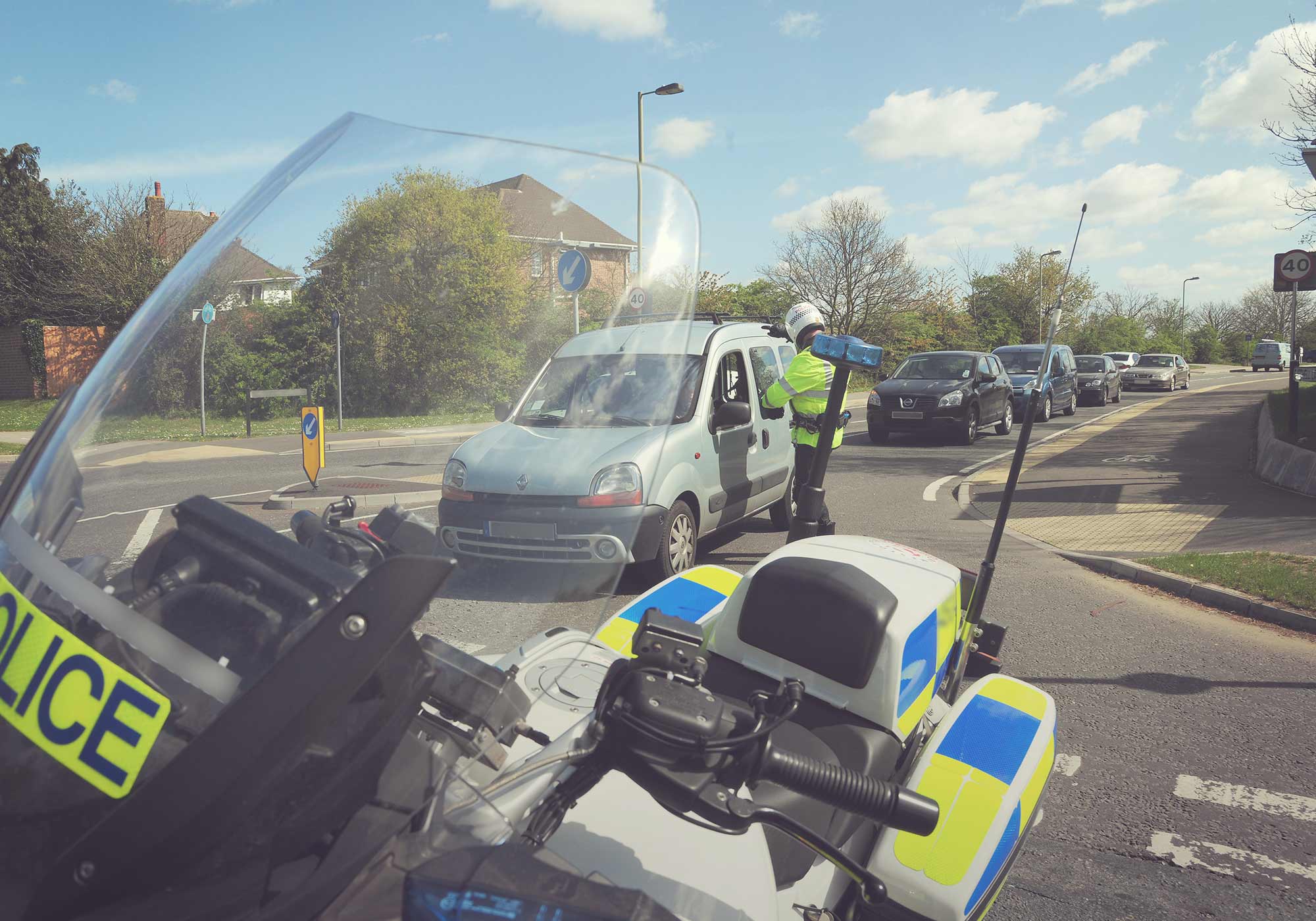If you’re out driving by yourself, especially if it’s late at night, the thought of being pulled over by the police can be a scary one.
This page provides some helpful information on why the police pull drivers over, what might happen if you’re pulled over, and how to help avoid it happening to you.
Why the police often pull drivers over
The police can decide to stop a car for any reason. Here are some common reasons:
Minor motoring offences
- Speeding
- Lane use (e.g. hogging the middle lane).
- Tailgating
- Using a mobile phone while driving
- Not wearing a seatbelt
Serious motoring offences
- Drink or drug driving
- Suspected traffic offence
- Suspected involvement in a road traffic accident
Vehicle faults
The police can pull vehicles over if they do not deem them roadworthy. Types of defect include:
- Cracked light lenses or lights not working
- Worn tyres
- Illegal number plate
Vehicle does not meet legal requirements in terms of documentation
- Lapsed MOT
- No vehicle tax
- No insurance
What will happen if you are pulled over by the police
If a police car is trying to pull you over, they will usually attract your attention by:
- Flashing their blue lights or headlights, or beeping the horn
- Pointing or indicating to the left to tell you that you need to pull over
If a police car signals for you to stop, you must pull over.
Did you know? It’s against the law to refuse to pull over when requested by the police.
There are various things that could happen once you’re pulled over, depending on the reason it’s happened. Here are some of the possible eventualities:
Producing your documents
The police can then ask to see any of the following documents:
- your driving licence
- your insurance certificate
- your MOT certificate
Don’t have them with you? Don’t panic. You’ve got 7 days to produce the documents requested, by taking them to a police station. Again, it’s against the law to fail to do this.
Fixed penalty notices
If you’ve been guilty of a minor offence (see above) the police officer might give you what’s called a fixed penalty notice.
You could be fined up to £100 and may get points on your licence. Find out more about fixed penalty notices here.
Breath test
In some circumstances the police officer might ask you to take a breath test.
Beware: if you refuse to do the breath test you could be arrested.
The officer will be able to see the results of the breath test immediately. If it proves you’re not over the alcohol limit, you’ll be allowed to continue your journey.
Vehicle faults
If your vehicle has been deemed unsafe (for example one of your lights is out), the police could give you a ‘vehicle defect rectification notice’.
You will then need to ensure your car is fixed, and give evidence of this (like a receipt from the mechanic) to the police within 14 days.
What to do if you are unsure whether it is an official police vehicle
In some situations, the vehicle signalling for you to pull over could be an unmarked police car. Understandably some drivers, especially if travelling alone at night, may feel vulnerable if this happens.
It is first worth noting that while an unmarked police car can pull you over, it must contain a constable in uniform who carries out the stop.
If an unmarked car flashes for you to pull over, Ask the Police recommends that you “drive steadily to the nearest public place (for example a petrol station where they are open till late, a police station of somewhere there are a lot of people) and then stop.”
“Try and signal that you have acknowledged the request to stop and indicate the action you are taking (put your flashers on or signal by pointing from the driver’s window etc.). Don’t drive off at great speed making the police think you are trying to get away.
Click here to read the full advice page.
Tips to avoid getting pulled over by the police
- Check your lights
Check all your lights regularly to make sure they’re in good order, and make sure you switch them on when it’s dark. - Stay in the correct lane
Stick to the left-hand lane unless you’re overtaking or turning right, or the road markings instruct otherwise. - Only drive if you feel safe to do so
If you feel unfit to drive, try and make other arrangements for your journey. If it seems like you might be driving distracted (for example weaving from side to side or far too slow for the type of road), it is likely the police will pull you over. - Make sure you’re road ready
Take a moment to make sure your MOT, car tax and insurance are all up to date. You can check that your car shows as insured on the Motor Insurance Database at http://www.askmid.com/. - Stay safe on the road
If you keep to speed limits and are careful and considerate on the road, you’re helping reduce the likelihood of being pulled over. - Keep your phone out of sight
Don’t let yourself be tempted to use your phone while driving, even if you’re sat in traffic. Traffic offers receive training so that they can spot faces lit up by a mobile phone in the car – so don’t expect to get away with it even if it’s only a glance!
